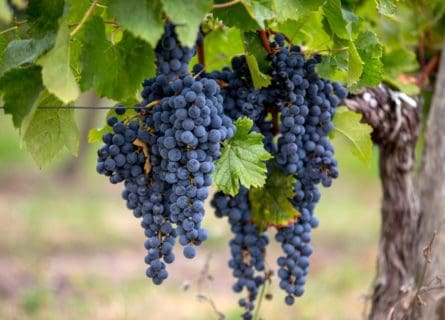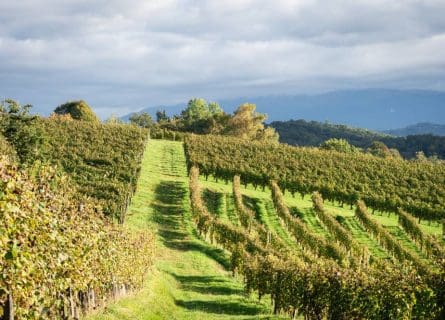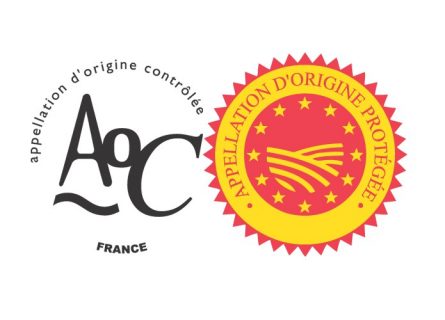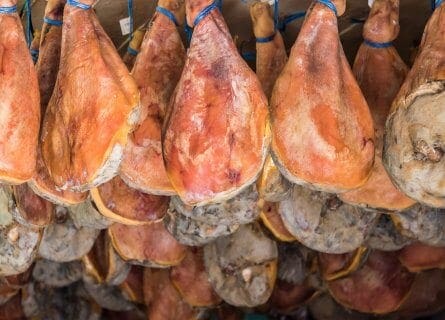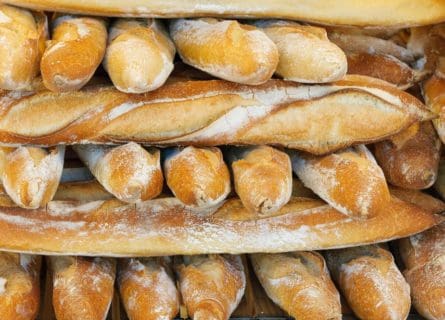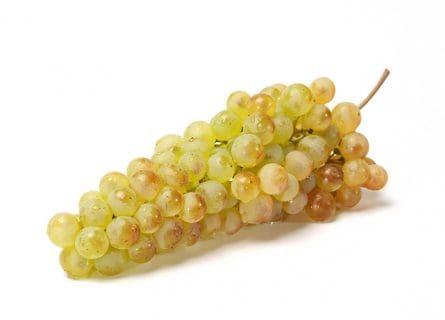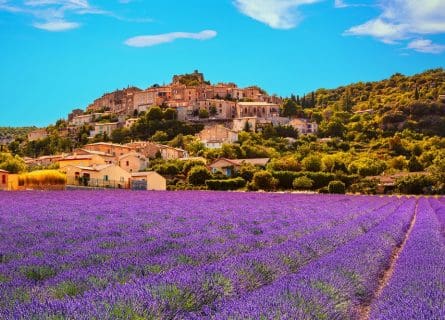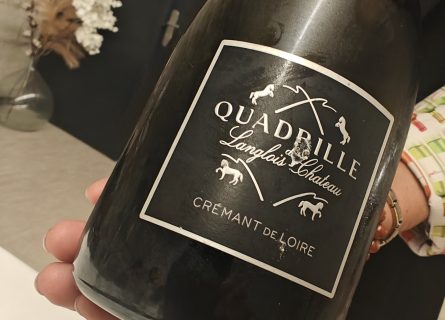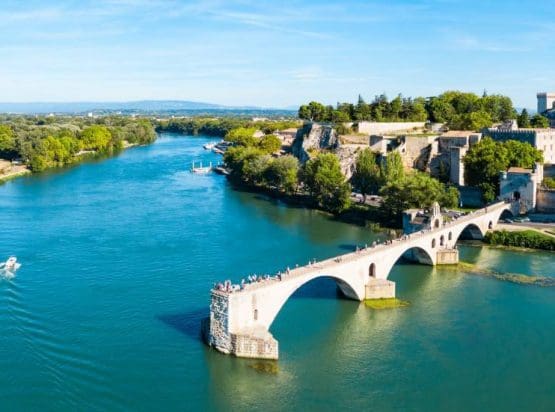
Orange Travel Guide
Orange: Where Romance, History, and the Essence of Provence Unfold in Every Sip and Sight
If you’re looking for the quintessential, romantic Provencal bolt-hole, then you’ve found it in Orange. Indeed, the Vaucluse region epitomizes the Provencal cliché: rolling lavender fields, blue skies, excellent food, and superb wine can all be found in Orange. History lovers will also adore this picture-postcard village, which boasts an exceptionally preserved Roman theatre renowned for its alfresco opera performances in the summer. Yet, Orange remains surprisingly uncrowded – outside of July/August – meaning visitors can marvel at its incredible architecture and scenic beauty in relative peace.
Like so many of France’s villages and towns, Orange officially started life as a Roman settlement, founded in 35 BC by Roman legionaries who had previously fought the local Celtic tribes for control of this part of France. Under Roman control, the settlement – known as Arausio – soon grew in importance as the capital of northern Provence, which was the Roman’s entry point into Gaul. Arausio was bestowed the title of a “miniature Rome,” complete with a forum, temple, and an impressive amphitheater that still stands today.
The settlement enjoyed many years of stability under Roman Rule, which ended abruptly following the collapse of the Western Roman Empire. In the 5th century, Orange was attacked by Visigoth tribes from northern Europe, who quickly captured the village from the Romans. However, by this point in time, Christianity was well established in Orange, and the Visigoth rulers were relatively benign in their treatment of their new citizens.
During the 6th and 7th centuries, Orange once again thrived as a key commercial and religious center, once recognized as the Diocese of Orange by the Catholic Church. In the 5th century, Orange was asked to host a Catholic Synod or religious council, cementing its status as an important center for the Catholic faith in Provence.
In the 12th century, the village was ruled as the Principality of Orange, a feudal state in Provence that existed for centuries until 1713. In 1163, the Holy Roman Emperor Frederick I elevated Orange and its surrounding territory to a sovereign principality, meaning that Orange operated as a fief or heritable property under the jurisdiction of the Holy Roman Empire.
The principality of Orange played an influential role in the history of the Dutch Royal family in the 16th century, when the Dutch King William I inherited the title of Prince of Orange from his cousin in 1544. Through marriage with the German House of Nassau, Orange was a protestant territory of William I, which placed the village in a precarious position during the French Wars of Religion. During the conflict between Roman Catholics and French Protestants, known as Huguenots, Orange was badly damaged by Catholic forces, who laid siege to the city. Much blood was spilled during the Wars, and atrocities were committed on both sides.
In the 17th century, William I initiated what became known as the Eighty Year’s War between Philip II of Spain and 17 provinces who wished to become independent of Philip’s rule. William was subsequently assassinated in 1584. However, his son Maurice of Orange helped to win the independence of the new Dutch Republic. The House of Orange later made its mark on English history through William III, who ruled England until he died in 1702. Today, many members of the royal house of the Netherlands are known as the princes and princesses of Orange-Nassau.
Orange remained an independent territory within France until the late 17th century when it was finally captured by the forces of King Louis XIV in 1682. It was ceded to France in 1713 by the Treaty of Utrecht, formally ending the Franco-Dutch War.
The 19th century witnessed many important landmark events for France and the citizens of Orange. The outbreak of the French Revolution in 1789 caused great bloodshed across France and saw Orange absorbed into the department (territory) of Vaucluse, where it remains today.
The outbreak of the 1st World War didn’t directly involve the citizens of Orange; however, during the Second World War, Provence was under the control of Vichy France, the puppet French government based in the town of the same name. It was a dark time for the region, as the Vichy regime was vicious and very anti-Semitic; local police in villages like Orange proved efficient in rounding up French Jews for deportation to the Nazi death camps.
However, Orange greeted the 21st century with great optimism; recently, it has cemented its position as one of Provence’s must-visit destinations, an utterly charming and beguiling village offering exceptional historical heritage. But beyond its impressive architecture and Roman remains, Orange’s greatest asset is its citizens’ natural vivacity and joie de vivre, who love to experience life to the fullest in the village’s lively old town. Narrow streets, well-restored façades, ancient shady squares, and a plethora of lively bars and excellent restaurants await you in Orange – the jewel of Provence.
-

Daube Beef Stew Gastronomy & Wine
Provence’s natural magic extends to its cuisine – the region continues to be one of France’s most exciting places to eat out. The Roman legacy of olives, wheat, and wine remains the trinity of la cuisine Provencal, albeit the younger generation of chefs update local classics with aplomb. At their disposal is a wealth of excellent natural produce: pink garlic, colorful fresh peppers, tomatoes, eggplants, courgettes, and asparagus, all tantalizing the taste buds, not to mention Carmargue lamb and the freshest fish and seafood around!
Despite its relatively small size, Orange boasts a good selection of restaurants, from street-side cafes to family-run bistros. The richest pickings are found in the old town, although good restaurants are situated across the center. Le Forum on Rue Mazeau does a small array of local dishes cooked to perfection. But for a more formal experience, head to Le Parvis for the most delicate marinated lamb, grilled trout, and bouillabaisse. In the summer, the terrace-only Festival Cafe is a sensible choice and one of Orange’s most romantic spots for dinner. Also, take advantage of the excellent market held every Thursday; the village’s central streets are lined with stalls on Thursday morning, bursting with delectable, fresh local produce.
Located in the famous Rhone Valley, Orange has an abundance of excellent local wines and is not far from Chateauneuf-du Pape’s vineyards, arguably one of France’s most recognized regions. Grenache, a potent and spicy grape that ages well when blended with the local Syrah and other varieties, is the mainstay of winemaking in the southern Rhone Valley.
A Gastronomic Guide to Provençal Cuisine: Read more
Nearby Wine Regions
-
 Tour Rhône Valley for prestigious wines & culinary delights, from Côte Rôtie's charm to Hermitage's grandeur. Plan your trip! Read more
Tour Rhône Valley for prestigious wines & culinary delights, from Côte Rôtie's charm to Hermitage's grandeur. Plan your trip! Read more -
 Explore the enchanting Provence wine region and discover the symphony of sights, aromas, and timeless wines it offers. Read more
Explore the enchanting Provence wine region and discover the symphony of sights, aromas, and timeless wines it offers. Read more
Highlights
-
Theatre Antique
Orange’s Roman theatre is by far the most impressive Roman sight in France. Its sheer size and age are awe-inspiring: designed to house over 10,000 spectators, it was built during Augustus Caesar rule, between 27BC and AD14. The intact wall is one of only three still standing in its entirety, and today hosts regular theatrical and musical performances. In fact, the only word to describe watching a performance in Orange’s amphitheater during a balmy summer night is magical.
-
Arc de Triomphe
Orange’s 1st-century AD triumphal arch stands a proud 19m high and wide, at the northern end of the tree-lined avenue de L’Arc de Triomphe, northwest of the centre. An ideal early evening stroll would begin in the old town, before ending up at the Arc to marvel at its beautiful facade, which uses ornate sculptures to depict Rome’s victories over the Gauls in 49 BC.
Recommended for you
More information
If you would like us to customize an exclusive luxury tour, contact us and let us know your travel plans. We offer luxury food and wine tours for private groups of a minimum two guests. In addition, all of our private, chauffeured tours are available year-round upon request.



